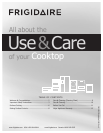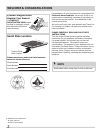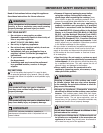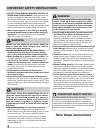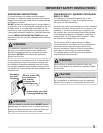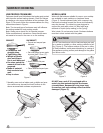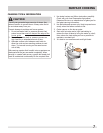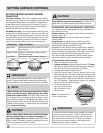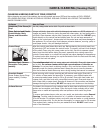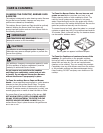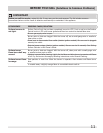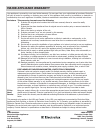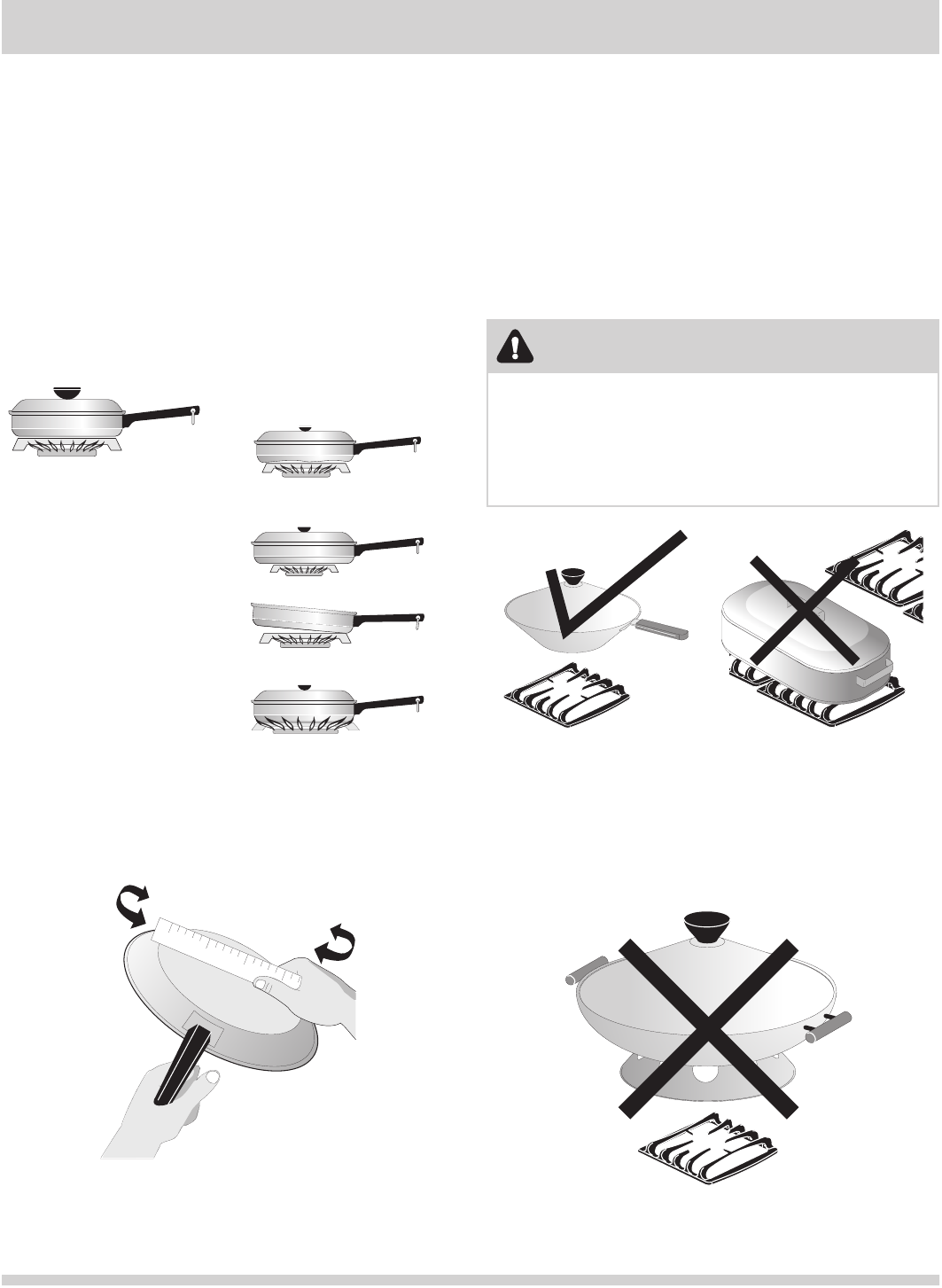
6
Cookware should have at bottoms that make good contact
with the entire surface heating element. Check for atness
by rotating a ruler across the bottom of the cookware (See
Figure 2). Be sure to follow the recommendations for using
cookware as shown in Figure 1.
Note: The size and type of cookware used will inuence
the setting needed for best cooking results.
Note: Always use a utensil for its intended purpose.
Follow manufacturer’s instructions. Some utensils were
not made to be used in the oven or on the cooktop.
* Specialty pans such as lobster pots, griddles and pres-
sure cookers may be used but must conform to the
above recommended cookware requirements.
CORRECT
straight sides.
does not tilt pan.
Pan is well balanced.
amount of food to be
prepared.
that conducts heat
well.
INCORRECT
• Curved and warped pan
bottoms.
• Pan overhangs burner grate
by more than 2.5 cm (1”).
• Heavy handle tilts pan.
• Flame extends beyond pan.
Figure 1
Figure 2
metal ring that extends beyond the burner
circumference. Because this ring traps heat,
the surface unit and cooktop surface could be
damaged (Figure 5).
Woks with at bottoms suitable for use on your cooktop
are available in most cookshop or hardware stores
(Figure 3). Round-bottomed woks (with a support ring
that does not extend beyond the burner circumference)
may also be used. The metal ring was designed to
support the wok safely when it is lled with large
amounts of liquids (soup making) or fat (frying).
Wire trivets: Do not use wire trivets. Cookware bottoms
must be in direct contact with the grates.
Figure 3 Figure 4
Figure 5
CAUTION
DO NOT use two burner units to heat one large pan such
as a roaster or griddle, or allow cooking utensils to boil
dry (Figure 4). The bottom surface of the pan in either
of these situations could cause discoloring or crazing of
the appliance cooking surface, and damage to the grates
and burner units.



